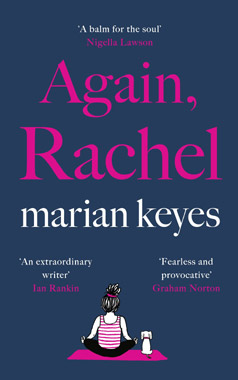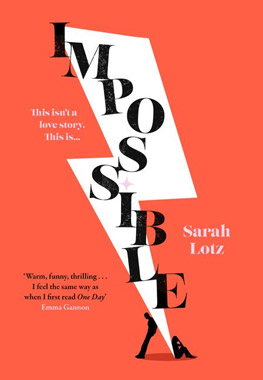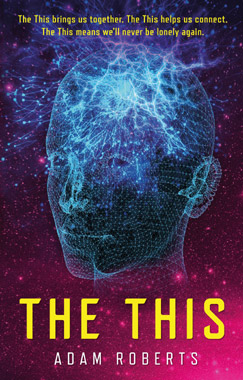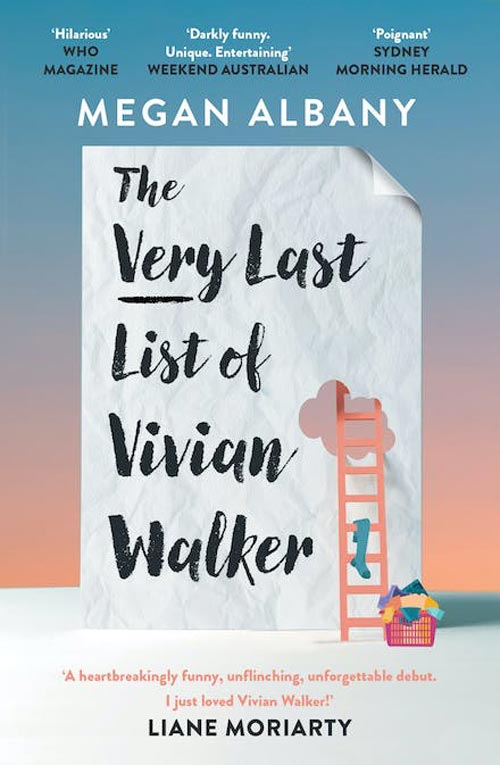Showing all posts about writing
Twitter novels, written in 140 character tweets
17 March 2022
Here’s a blast from the past, from back in the days when tweets were limited to 140 characters: “novels” restricted to said limit, written by best-selling authors including Jilly Cooper, Ian Rankin, Jeffrey Archer, and Anne Enright, in October 2012.
If there were an award for the best Twitter fiction “novel”, and I were the judge, I’d name British novelist Helen Fielding, she who gave the world Bridget Jones’s Diary in 1999, the winner:
OK. Should not have logged on to your email but suggest if going on marriedaffair.com don’t use our children’s names as password.
This may, or may not be, Fielding’s Twitter page.
RELATED CONTENT
Helen Fielding, novels, writing
The 2022 Elizabeth Jolley Short Story Prize
16 March 2022
Entries are open in the 2022 Elizabeth Jolley Short Story Prize. Works of fiction, written in English, consisting of two thousand to five thousand words, are eligible, with a prize money pool totalling A$12,000 on offer. Entries close on Monday 2 May 2022. While an Australian based prize, submissions will be accepted from anyone regardless of their location.
Established in 2010, the prize was renamed the following year in honour of late British born Australian writer Elizabeth Jolley. Although she had been writing for decades, Jolley’s first book was not published until she was fifty-three. She also taught writing at what is now Curtin University, in Perth, Western Australia, and renowned Australian author Tim Winton was among her students.
RELATED CONTENT
Elizabeth Jolley, literature, writing
2022 International Booker Prize longlist
11 March 2022
Thirteen titles have been named on the 2022 International Booker Prize longlist. Awarded in its present format since 2016, the International Booker celebrates works translated into English, with the £50,000 prize split equally between the author and translator.
Among the titles translated from eleven languages into English, is Tomb of Sand, by New Delhi based Indian author Geetanjali Shree, and translated by American writer and painter Daisy Rockwell. Shree’s work is the first book written in Hindi to be included on the International Booker Prize longlist.
Just about all of these titles are new to me — the books I read, when time permits, tend to be contemporary Australian, but not always — so it’s good to see something new and not so familiar, that I can add to my to-be-read list.
RELATED CONTENT
Booker Prize, literature, writing
Again, Rachel, Marian Keyes
28 February 2022

Readers of Irish author Marian Keyes‘ Walsh Family Series of novels first made the acquaintance of Rachel Walsh in 1997, in Rachel’s Holiday. Rachel was twenty-seven, and not in a good place. She’d just broken up with her boyfriend, Luke, and had been placed in rehabilitation by her family on account of her substance abuse.
Fast forward to 2021, and Rachel’s world is a better place. In fact, she has come full circle. She now works as a councillor at the facility she was admitted to twenty-five years earlier. Further, she’s in a happy relationship, and is getting along nicely with her mother and siblings. All up, everything seems to be going exceedingly well for Rachel. But her reverie is shattered by an out of the blue call from an old flame, in Again, Rachel (published by Penguin Books Australia, February 2022).
Just when she thought she had everything sorted out, and was settled, Rachel finds her life turned on its head. What is she to do? Follow her heart, and her ex, and venture back into a time and place she thought she’d left behind? Or remain in the predictable now? How fragile, it seems, is the life we believed to be firmly established…
RELATED CONTENT
fiction, Marian Keyes, TBR list, writing
The rules of writing for writers by writers
23 February 2022
Ten rules for writing, put together by The Guardian, part one and part two, with insights from writers including Joyce Carol Oates, Michael Moorcock, Zadie Smith, Michael Morpurgo, Sarah Waters, and Will Self.
There’s a lot of good stuff here, such as this idea from Hilary Mantel:
Write a book you’d like to read. If you wouldn’t read it, why would anybody else? Don’t write for a perceived audience or market. It may well have vanished by the time your book’s ready.
Particularly relevant for someone like me who writes at a glacial pace. And then this nugget from British poet Andrew Motion:
Decide when in the day (or night) it best suits you to write, and organise your life accordingly.
Thank you. I’ll go for later in the day. This coming from someone not of the school of thought you must wake at 4AM to achieve anything.
RELATED CONTENT
The definition of being a single parent
23 February 2022
Dani Vee, Sydney based host of literary podcast Words and Nerds, writes about being a single parent at Ramona Magazine. If you only read one paragraph of the article, make sure it’s this one:
The next time you hear anyone talking about single mothers, start by replacing words like lonely, stressed, frazzled, broke and struggling with ‘you mean that independent-solution-focused-resilient-kick ass woman with the electric lawnmower?’
Also lookout for her debut picture book My EXTRAordinary Mum, featuring illustrations by Alexandra Colombo.
RELATED CONTENT
Impossible by Sarah Lotz
21 February 2022

What would you do if an email intended for another person, made its way to your inbox? Would you delete it forthwith? Or would you, without blinking at it, inform the sender by return, of their error? Or might you feel that’d be tantamount to admitting you’d read the message? Might you think you were therefore exposing yourself to possible retribution, by making yourself known to the sender?
Or might you be like Bee, a London dress maker, who having received, and read, an incorrectly addressed email, decides to send a considered reply to the sender, because she found the contents intriguing? And would you believe for a second that such a response could be the beginning of a friendship, or perhaps something more?
This is exactly what happens in Impossible (published by HarperCollins Publishers, March 2022), by Sarah Lotz, the eighth novel by the British novelist and screenwriter. Nick, who is struggling personally and professionally, is surprised when Bee, a stranger, replies to his misdirected rant, but is delighted as their correspondence becomes regular and more intimate.
After all, who doesn’t like a meeting a new friend? But when Bee and Nick realise there is more to their exchanges than cordial banter, they decide to take the next step. Nick jumps on a train from Leeds, while Bee makes her way to London’s Euston station to meet him. But is it that simple? Can something come of what they have? Could it? Or is there too much they don’t know about each other to make that possible?
RELATED CONTENT
fiction, Sarah Lotz, TBR list, writing
The This, Adam Roberts
16 February 2022

This sounds convenient. Instead of hauling a smartphone around all the time, you could instead have a social media platform injected into the roof of your mouth. The implant would mesh with your brain, eventually taking the place of your phone. Blink twice to take a photo maybe, communicate brain to brain with friends who also have the app implant.
Welcome to The This, the futurist social media app, and novel of the same name, written by British science fiction author Adam Roberts, published by Hachette Australia. The app is popular with many, but there are those who do not like it. They do not want to be part of the so-called hive mind. They’ve seen Twitter, they’ve seen enough. But the storyline has all the hallmarks of a hive mind, a sprawling, surreal, neural network spanning space and time.
Adan is a journalist, sent to profile the CEO of The This. But after Adan’s mother unexpectedly leaves the country, he is forced to join the army as he is left without a home or any money. Adan is battling a robot invasion, in a reality far removed from the one he once knew. In later centuries a diminished humanity is fighting off another hive mind, one intent of the final destruction of humanity. And all because we wanted to try out a new social media app…
RELATED CONTENT
Adam Roberts, fiction, TBR list, writing
Francis Spufford, a writer once not a writer
16 February 2022
If you were a writer like British author Francis Spufford is, but didn’t want to call yourself a writer, as was once the case for Spufford, what title would you settle for instead?
It took me a long time to decide I wanted to be a writer. And then I felt that to call myself a writer, let alone a novelist, would be a kind of boast. I accepted it gradually, once I could see the objects I’d made.
If it were me, and we were talking about say works of fiction, I’d probably describe myself as a storyteller.
RELATED CONTENT
The Very Last List of Vivian Walker, Megan Albany
12 February 2022

I couldn’t imagine how I’d feel if I were told I only had a certain amount of time left to live. It’s not the sort of situation most of us are used to dealing with. Our time, energy, and thought-output goes into dealing with all those other everyday predicaments. Paying the mortgage, getting the kids into the best school. Meeting the latest deadline. No pun intended.
But this is what happens to Vivian, the titular character of The Very Last List of Vivian Walker (published by Hachette Australia, 9 February 2022), the debut novel of Kalkadoon woman Megan Albany, an Australian author based in the Northern Rivers of NSW.
With her mortality hanging by a thread, Vivian does what any self-possessed control freak whose life is regimented by lists would; she decides to face her demise by organising herself. She prepares to-do lists not only for herself, but husband Clint, and son Ethan. These lists, she hopes, will soften the blow of her terminal diagnosis, and prepare the family for a future without her.
Vivian’s final days are punctuated with a certain dark humour, and one hopes not too many of us will ever find ourselves taking a leaf from the book of Vivian Walker.
RELATED CONTENT
